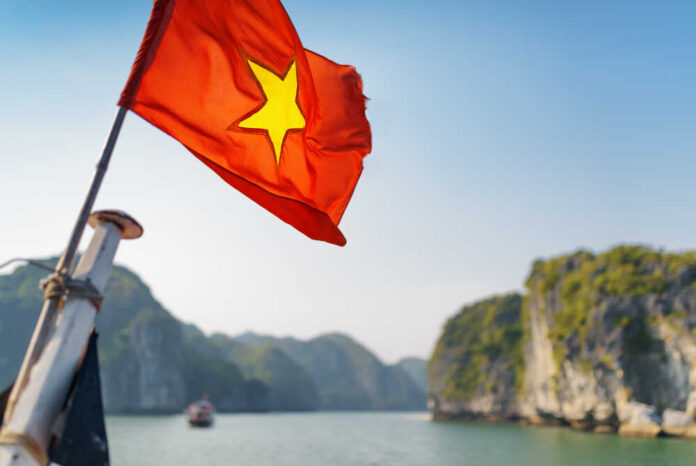
As tensions continue to escalate in the energy-rich South China Sea, China’s latest move—a flagrant violation of Vietnam’s exclusive economic zone (EEZ)—sends a chilling message. Ignoring international norms, a Chinese research ship and five escort vessels recently cruised into a gas block operated by a Russian-Vietnamese joint venture. This aggressive act raises the stakes for all nations with jurisdictional claims in the disputed region.
Last Friday, China deployed the research vessel Xiang Yang Hong 10 and a small fleet into waters where Vietsovpetr, a joint venture between Russian-owned Zarubezhneft and PetroVietnam, operates gas block 04-03. This move came shortly after Vietnam issued a rare public demand for Chinese vessels to leave the area. However, Beijing’s response was nothing short of dismissive, reflecting an attitude that is becoming all too common from this superpower.
China enters waters off of Vietnam near Russian gas block in 'worrying escalation' https://t.co/gIlMOOJLHt
— Fox News (@FoxNews) May 27, 2023
As Mao Ning, Chinese spokesperson, stated, “Relevant ships of China carry out normal activities under China’s jurisdiction. It is legitimate and lawful,” and continued, “There is no issue of entering other countries’ exclusive economic zones.” But the facts on the ground suggest otherwise.
While international ships are indeed allowed to cross other nations’ exclusive economic zones, which aren’t the direct territory of any specific sovereign, nations still retain jurisdictional rights over these areas under international law. This includes special rights regarding exploration and use of marine resources, which Beijing seems to be conveniently overlooking in its justification for entering Vietnam’s EEZ.
This isn’t the first time China has shown such a flagrant disregard for the jurisdictional rights of its neighbors. The superpower has been attempting to lay sovereign claim over the entire South China Sea, despite the existing rights of nations like the Philippines, Taiwan, Malaysia, and Vietnam.
Ray Powell, a leading authority on South China Sea affairs at Stanford University, considers this incident a “worrying escalation,” calling it the most significant incursion in the region since 2019. It’s more than just a breach of international law; it’s an audacious display of power meant to test the resolve of China’s neighbors and the international community.
China’s latest move in the South China Sea is more than simply disregarding Vietnam’s exclusive economic zone. Instead, it’s a statement of intent, a declaration that China does not recognize the jurisdictional rights of its neighbors when they conflict with its ambitions.
As the world grapples with the aftermath of this ‘worrying escalation’, we must ask ourselves how we will respond. Will we stand by as China continues to push the metaphorical and literal boundaries? Or will we uphold the principles of international law and sovereignty, reinforcing the right of nations to defend their exclusive economic zones?
With this troubling disregard for international norms, China sends a clear message. For nations around the South China Sea and the global community watching closely, it’s a wake-up call.
































